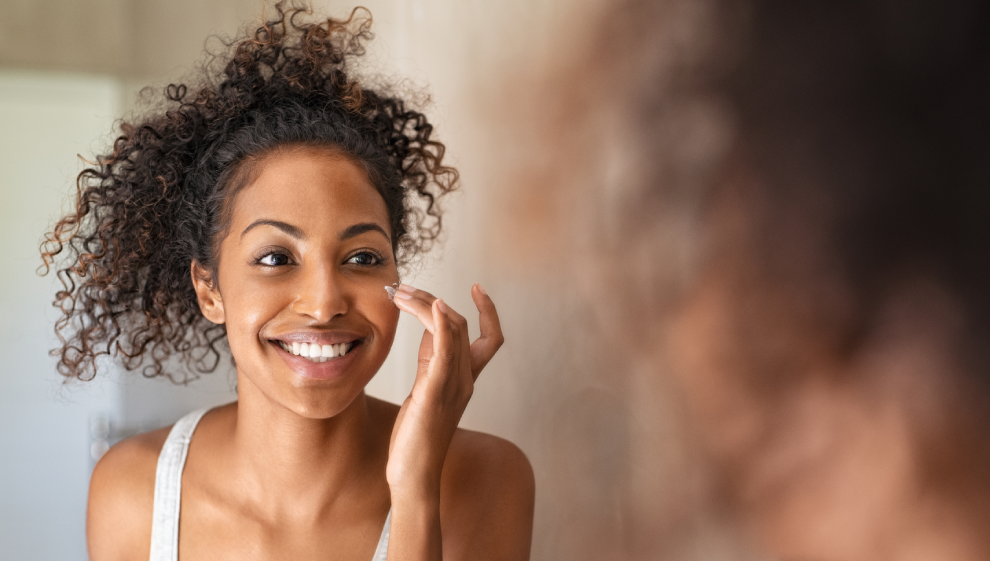The science behind beauty sleep | Nighttime skincare routine tips
- Overview
For many, the tell-tale sign that more sleep is needed is when we see it reflected back at us in the mirror. Dry, dehydrated skin, breakouts, and greasy hair can all be signs of a poor night’s sleep – but what is the science behind beauty sleep?
Sleep supports holistic health, not just physical aesthetics

We have all been guilty of deprioritising sleep at some point, whether for personal, professional or social priorities, but we don’t always understand the gravitas this has on our mind and body.
Quality sleep is crucial for our overall wellbeing. It affects our physical, mental, and cognitive health. We all know the impact of a bad night's sleep, but it's often the first thing we sacrifice due to a busy schedule.
Don't underestimate the importance of getting a good night's sleep; both the number of hours and the overall quality of it.
During sleep, the body undergoes regeneration and repair, which helps to support every system within our bodies. It’s crucial to prioritise getting uninterrupted quality sleep daily to maximise health benefits.
Sleep encourages the growth of hormone production
We tend to sleep in five-stage cycles, which last from 90 – 110 minutes and recur throughout the night. During stages 3 and 4, known as ‘deep sleep’, there is a surge in the secretion of growth hormones.
During deep sleep, growth hormones work to repair and regenerate cells, including skin cells. Growth hormones increase cell production and decrease cell protein breakdown.
Collagen and elastin, crucial components of the dermis, are produced with the help of these hormones. This results in plump, smooth, well-hydrated skin with a natural glow.
Deep sleep is essential for repairing skin damage incurred during the day. Make sure you get enough restful sleep to support healthy skin.
Lack of sleep increases cortisol levels
When we sleep, cortisol (stress related hormone) levels decrease in our bodies. Cortisol is the hormone that triggers our natural ‘fight or flight’ response, keeping us on high alert. This hormone is always present in our systems, but often at its lowest during sleep, allowing our bodies to regenerate from the day.
A lack of sleep can raise cortisol levels, which can harm our skin and hair and cause some of the most recognised skin symptoms from sleep deprivation.
Collagen naturally breaks down, however, cortisol can accelerate its breakdown further, leading to fine lines, dullness, and dehydrated skin. Elevated cortisol levels also cause blood vessels to dilate, which can exacerbate the darkening of the thin skin under the eyes (often referred to as ‘dark circles’).
Cortisol also stimulates oil production in both the skin and scalp, which can lead to acne breakouts and greasy hair. Chronically elevated levels of cortisol can lead to inflammation which, in the skin, results in flare-ups of skin conditions such as rosacea, psoriasis and eczema, as well as general dryness. It can also contribute to hair loss.
Implement a good night-time facial routine
The principles of sleep hygiene will help get you mentally and physically ready for sleep. It's also crucial to consider your facial routine before sleeping.

Cleansing your face before bed removes pollutants such as make-up and environmental particles that your skin comes into contact with throughout the day. Remove any make-up before washing your face for maximum effectiveness.
If you’re looking to prep your skin before sleep, use a medical grade face wash with hydro acids (AHAs) or beta hydroxy acids (BHAs) to gently exfoliate and stabilise oil-producing pores. A non-alcohol toner will help to refine the pores by stripping natural oils from the skin.
For anti-ageing, fine lines, and pigmentation, use Vitamin A at night to keep epidermal cell turnover optimal. Finally, apply a moisturiser that works with the skin's natural hydrating factors.
Remember, the sleep hygiene principles combined with a proper facial routine can lead to better sleep and healthier skin.
If you have been regularly struggling with sleep and it's affecting your day-to-day life, get in touch with your local GP, or for more sleep advice click here.
Last updated Wednesday 22 March 2023
First published on Monday 12 September 2016

